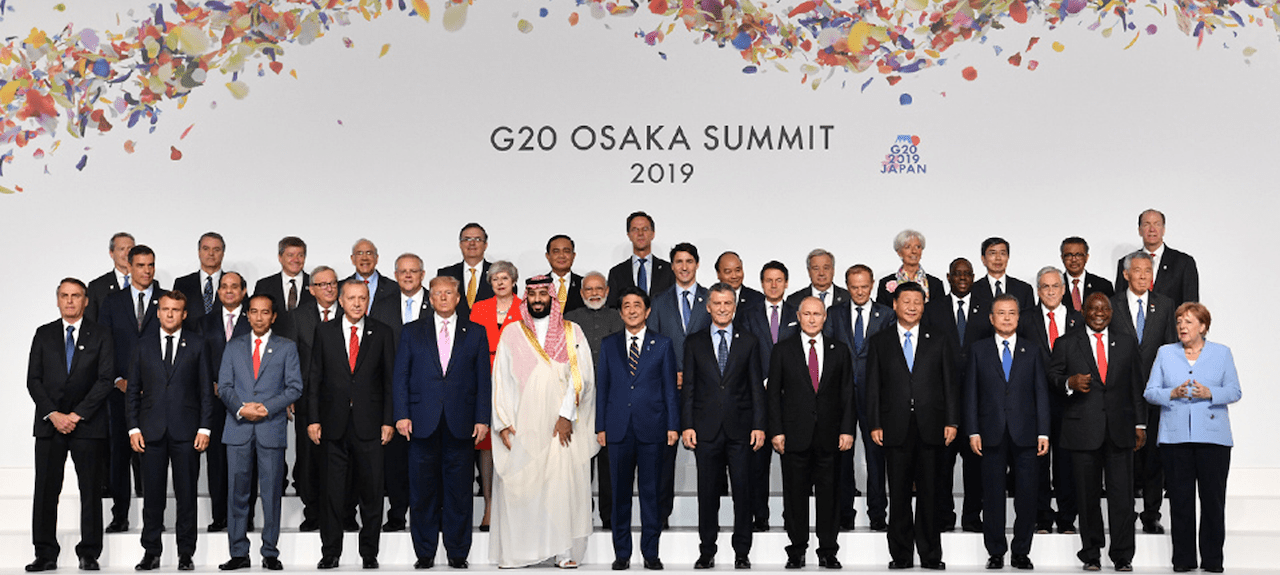
International Institutions Make Decisions that Affect All of Us
Since the end of World War II, there was a remarkable growth in the number of global governance actors, with the goal to reduce the chance of war and promote worldwide development by increasing international collaboration. Examples are the World Bank, the International Monetary Fund (IMF) and the United Nations (UN), with its respective agencies and programs. However, several gaps have been perceived in the way those global actors make decisions and implement them, which have led them to losing legitimacy and credibility. Such gaps are mainly related to international representation: the Southern states perceive the Northern states as dominant and unwilling to compromise on their behalf. In this essay, therefore, I will answer the question: “What role does or should the G20 as an international forum play in addressing global challenges?”.
My argument revolves around current perceptions of international forums in general, emphasizing the role of the G20 as a promising way to mitigate international inequalities and address global issues such as climate change, gender equality and access to education.
Brazil’s former president, Lula da Silva, has stated that international institutions “make decisions that affect us all but without consent” (Cooper and Thakur, 2013, p. 4). Likewise, critics of international forums have regarded them as unable to repair historical inequalities, keeping the richest countries in control of all decisions taken and implemented. Some even state that they are “not interested in development”, but that their primary motivation is to “make sure that banks and financial institutions are paid their due” (Cooper and Thakur, 2013, p. 3). Before such criticisms, it is clear that the world would need a more representative and effective international fora.
The G20 Should Combine Economic Solutions With Social and Environmental Issues
The G20 was created in response to the need for innovations in international governance. The G20 is a group of 20 countries who represent the world’s most important economies. Examples of countries that are included in this group are Brazil, Mexico, China, South Africa, United States and Australia. Together, the 20 members represent “two-thirds of the world’s total population, 80-90 percent of the world’s gross product and economic growth” and “60 percent of the world’s poor” (Cooper and Thakur, 2013, p. 4). With that configuration, the G20 is capable of bridging the North-South divide. It has an incredible potential to shape international relations through the exchange of power, ideas and assets. It is not a group of war winners, but a group of countries that united based on the willingness to recover and grow together.
The G20’s creation was motivated mainly by a financial crisis, and not by a war, which, by nature, implies that countries who are integrated are aware of their inter-dependence in finding and implementing solutions. Such inter-dependence is not only present in international finance. Expanding the areas of collaboration is key to ensure that the G20 plays the international role it was meant to have. Therefore, to better address global challenges as an international forum, the G20 should combine economic solutions with social and environmental issues. Evidently, a financial crisis is not just an economic problem. It causes higher economic inequality, poverty and lack of access to basic rights, such as quality health and education. For its first 11 years, the group focused on key financial, economic, trade and development issues. Considering the current global problems, it should continue to expand its thematic topics and connect economic solutions to social and environmental needs. In 2001, for instance, the G20 addressed the issue of terrorism. In 2006, it discussed climate change (Kirton, 2013).
This year, the G20 met virtually with the presidency of Saudi Arabia. Its discussion were under the theme “Realizing Opportunities for the 21st Century For All”. Once again, the topic of inclusion and representativity were relevant. The Summit’s discussions were highly influenced by the COVID-19 pandemic, which emphasized our global inequalities and our need to provide support to the most affected economies. The solutions found by G20 included the “implementation of unprecedented fiscal, monetary and financial stability actions” and the estimation that their “efforts to temporarily extend social protection measures have supported the livelihoods of nearly 645 million people” (G20, 2020, p. 4). The group’s plan to ensure a global recovery from the pandemic is comprehensive. It includes a wide range of topics, from financial stability to digital inclusion, tourism and climate. The implementation challenges lie in realizing those proposals and making sure countries are fairly included in their planning, execution, monitoring and evaluation.
What Role Does or Should the G20 as an International Forum Play in Addressing Global Challenges?
Beyond combating the effects of the current global pandemic, other examples of topics that should be discussed in the upcoming years are climate change, gender equality and access to education. In 2019, the “Brown to Green Report” by Climate Transparency analysed G20 integration and its effectiveness to mitigate climate change. The report states that “G20 countries are leading in greening the financial system” (Wahlén, 2019), which corroborates my argument that, by uniting financial motivations with solutions for environmental and social problems, the G20 can play a central role in implementing them.
At the panel “Outcome of the G20 Osaka Summit”, participants established some priorities for the G20 Summit. Princess Haifa Al Mogrin from Saudi Arabia has stated that women empowerment will be among them (Mead, 2019). Ensuring equal access to opportunities for males and females is fundamental to reach lasting development in any country. As a group that prioritizes sustainable economic growth, the G20 should definitely consider a gender perspective on its policies.
Lastly, access to education is also an important theme to be discussed this year. Just like equal opportunities across genders, education is crucial for development. At the “Empowering Future Generations Panel” in Osaka, the World Bank has presented the Human Capital Project, which promotes investments in youth development to ensure access to education and word. Such ambitions should be further discussed among the Group of 20, so that, once again, economic efforts are aligned and supported by the reduction of social inequalities.
In conclusion, the G20, as an international forum, should continue to have a role that integrates economic strategies – its fundamental motivation – to current global environmental and social problems, taking advantage of its international representation and good reputation among global governance actors.
An article by Yasmin Morais.
___
The views and opinions expressed in this article are those of the author and do not necessarily reflect the views of the Global Solutions Initiative.
___
The author is member of the extended circle community of the Young Global Changers program.
 Yasmin Morais, being from the north of Brazil and growing up in the south, she has witnessed social inequalities since an early age, so Yasmin has been involved in various social impact activities that would reduce those inequalities. She has worked alongside other young people in issues ranging from homelessness and human trafficking to the refugee crisis and human rights education. Currently, Yasmin studies International Relations and works as a Program Manager at Global Changemakers; she is also a co-creator of the Global Changemakers Mentorship Program.
Yasmin Morais, being from the north of Brazil and growing up in the south, she has witnessed social inequalities since an early age, so Yasmin has been involved in various social impact activities that would reduce those inequalities. She has worked alongside other young people in issues ranging from homelessness and human trafficking to the refugee crisis and human rights education. Currently, Yasmin studies International Relations and works as a Program Manager at Global Changemakers; she is also a co-creator of the Global Changemakers Mentorship Program.
